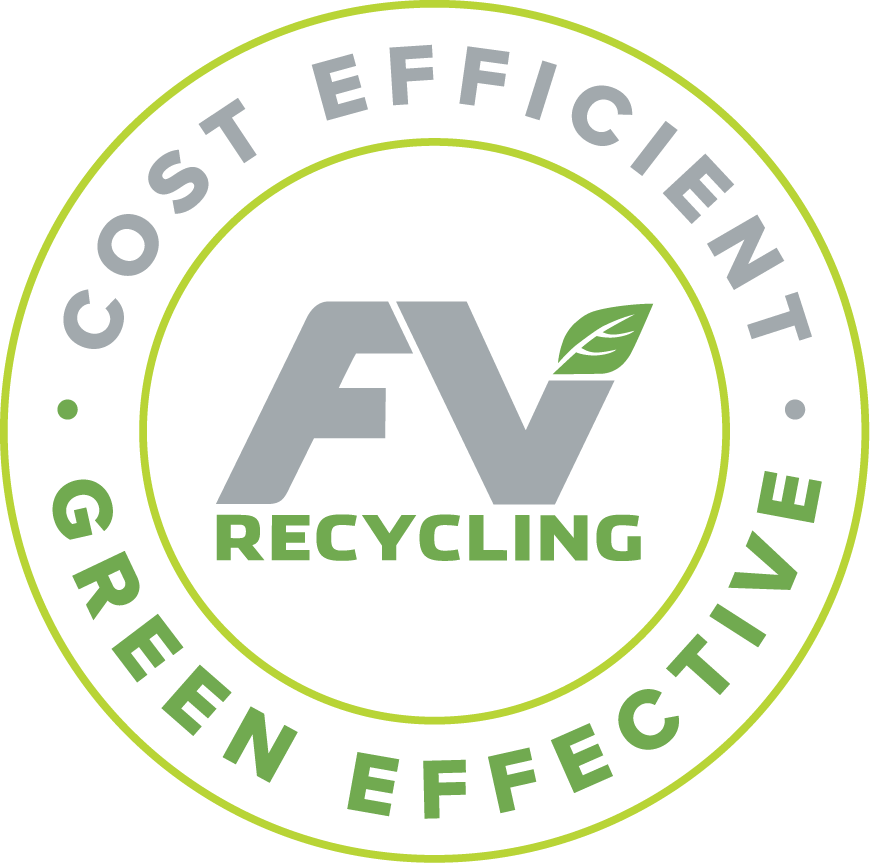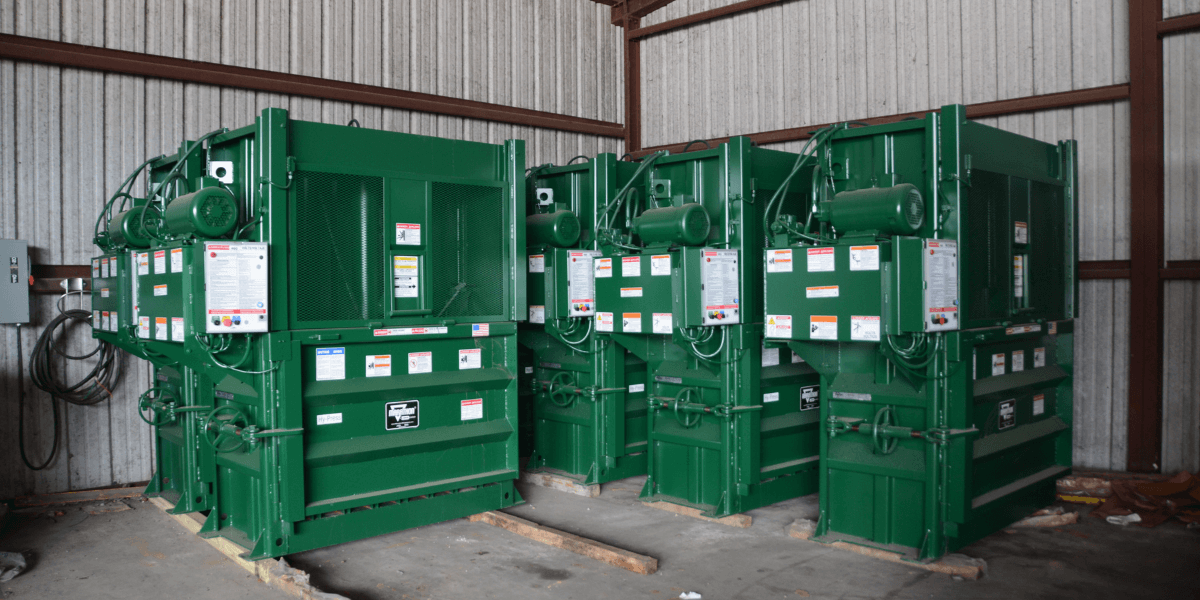What Is a Cardboard Baler and How Does It Work?
Cardboard waste is a byproduct of doing business, but it doesn’t have to be a burden. For many companies, especially those generating high volumes of...
![]()
Sign up for monthly notifications from FV Recycling to stay up-to-date on news, events, education and more.
![]()
4 min read
 FV Recycling
:
Dec 2, 2024 8:48:33 AM
FV Recycling
:
Dec 2, 2024 8:48:33 AM
When it comes to managing waste efficiently, especially for businesses dealing with large volumes of cardboard, choosing the right cardboard baler or compactor is essential. Whether you're looking to buy a baler outright, lease one, or even rent a baler for a short-term need, making the right choice can significantly impact your commercial waste management operations, bottom line, and commitment to diverting waste from landfills.
In this buyer’s guide, we’ll walk you through the key factors to consider when purchasing or leasing a cardboard baler, the different types available, and how to make an informed decision that aligns with your business needs while effectively recycling cardboard.
Cardboard balers come in various types, each suited for different operational needs and business sizes. Here are the most common types of balers you'll encounter:
Vertical balers are compact machines designed for small to medium-sized operations. These balers are ideal for businesses with limited space, and they can be easily operated by a single person. Vertical balers typically process smaller amounts of cardboard and are often found in retail stores, warehouses, or distribution centers.
Horizontal balers are larger, more powerful machines designed for high-volume operations. These balers are capable of processing large amounts of cardboard waste quickly and efficiently. They are typically used in recycling centers, large manufacturing facilities, and distribution hubs.
Auto-tie balers are designed to automatically tie bales once they are formed, offering a hands-free solution for high-efficiency operations. These machines are often found in large-scale recycling centers and are capable of processing various materials, including cardboard, plastic, and other recyclable materials.
Manual tie balers are often used in smaller operations where labor costs are less of a concern or when the volume of waste doesn't justify the investment in automated machinery. These balers require an operator to tie each bale manually, but they are still an effective solution for many businesses.
Each type of baler has its unique advantages, depending on the size and scale of your operation. If you’re looking to purchase a baler or any type of recycling equipment, it’s crucial to evaluate your waste volume and available space to determine the best fit.
For more information on how balers fit into the recycling chain, check out our page on OCC Recycling to see how balers are used to streamline cardboard recycling processes and aid OCC Recycling Centers in processing..
When you're ready to purchase or lease a baler, consider the following factors to make an informed decision:
The amount of baled cardboard waste your business generates will dictate the size and type of baler you need. A small retail store with limited cardboard waste may only require a vertical baler, while a large warehouse or distribution center may need a horizontal baler to keep up with the volume.
If space is a constraint in your facility, a vertical baler may be the best option. These machines take up less floor space and can be easily operated in tight environments. On the other hand, horizontal balers require significantly more space but offer higher efficiency for larger operations.
If your operation demands high throughput and minimal labor, an auto-tie baler may be the way to go. These machines automatically tie bales after they are formed, reducing the need for manual labor and increasing operational efficiency. For smaller operations with fewer employees, a manual tie baler might be more appropriate.
It’s essential to consider the ongoing maintenance needs of the baler you choose. Look for a model that offers easy access for repairs, as well as a reliable service provider for baler repair if needed. You should also take into account the cost of replacement parts, including bale wire, which is a critical component for securing bales.
Safety should be a top priority when selecting any equipment. Look for balers with built-in safety features such as emergency stop buttons, safety interlocks, and proper guarding to prevent accidents in the workplace.
One of the most significant decisions when purchasing a baler is whether to buy a new or used machine. Both options have their pros and cons:
Ultimately, whether you choose a new or used baler comes down to your budget, how often you’ll use it, and how important uptime is for your operation. FV Recycling helps you plan cardboard baler costs and equipment costs before you commit.
When deciding whether to buy a baler or lease one, there are a few things to consider. If you expect long-term, consistent use and want to build equity in your equipment, purchasing may be the best option. On the other hand, if your business has fluctuating waste volumes or you’re uncertain about the long-term need for a baler, leasing or renting a baler can provide flexibility without the long-term commitment.
Leasing or renting a baler provides short-term access to equipment without the upfront cost of purchasing. This is ideal for businesses that only need a baler seasonally or temporarily or for those testing the equipment to see how it fits into their operations.
Choosing the right cardboard baler is an important decision for businesses looking to streamline their waste management and cardboard recycling processes. From evaluating the type of baler that best suits your needs, to considering whether to buy, lease, or rent, understanding the key factors will help you make a smart investment. Additionally, always keep in mind the essential components like bale wire and consider future repair and maintenance needs when making your choice.
Whether you are looking for a new or used baler, or simply need a temporary baler rental solution, understanding your options and consulting with a trusted provider will ensure that you make the right decision for your business.
.png)
Cardboard waste is a byproduct of doing business, but it doesn’t have to be a burden. For many companies, especially those generating high volumes of...
.png)
For businesses that generate high volumes of cardboard (think warehouses, cold storage units, distribution centers, retail operations, and...

Facilities eventually reach a point where waste stops being a background expense and starts becoming an operational issue. When dumpsters fill...